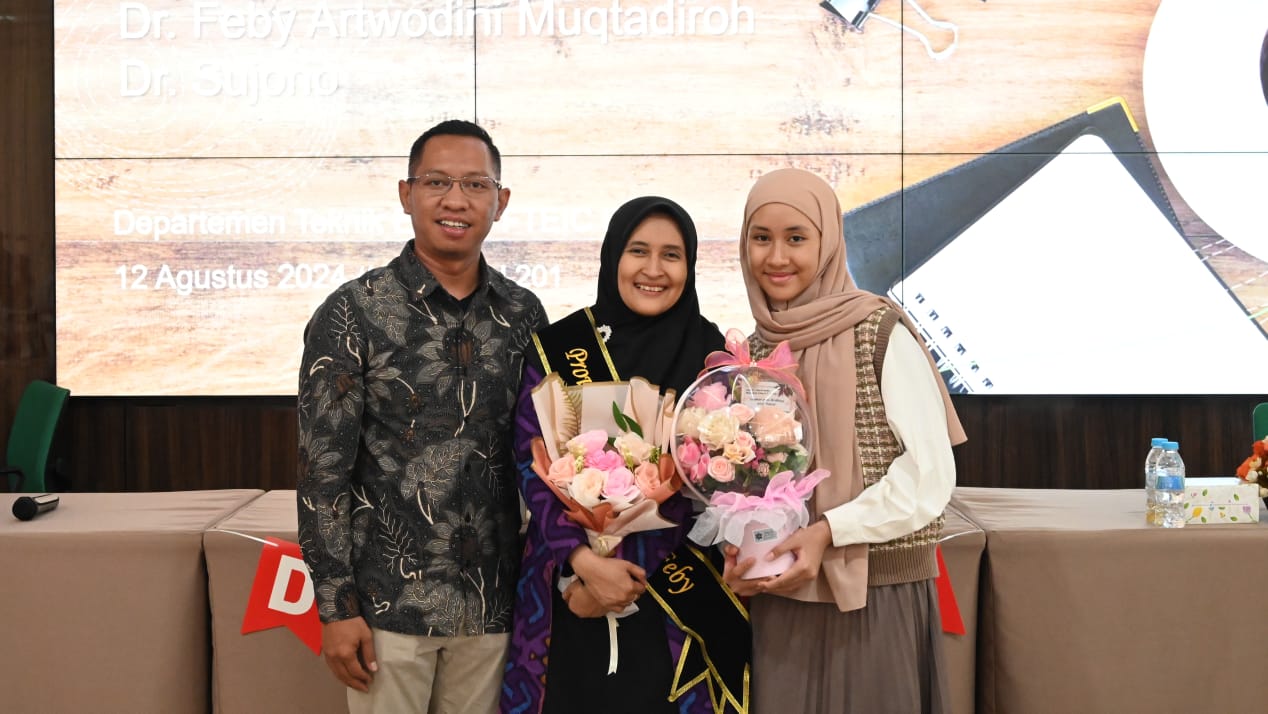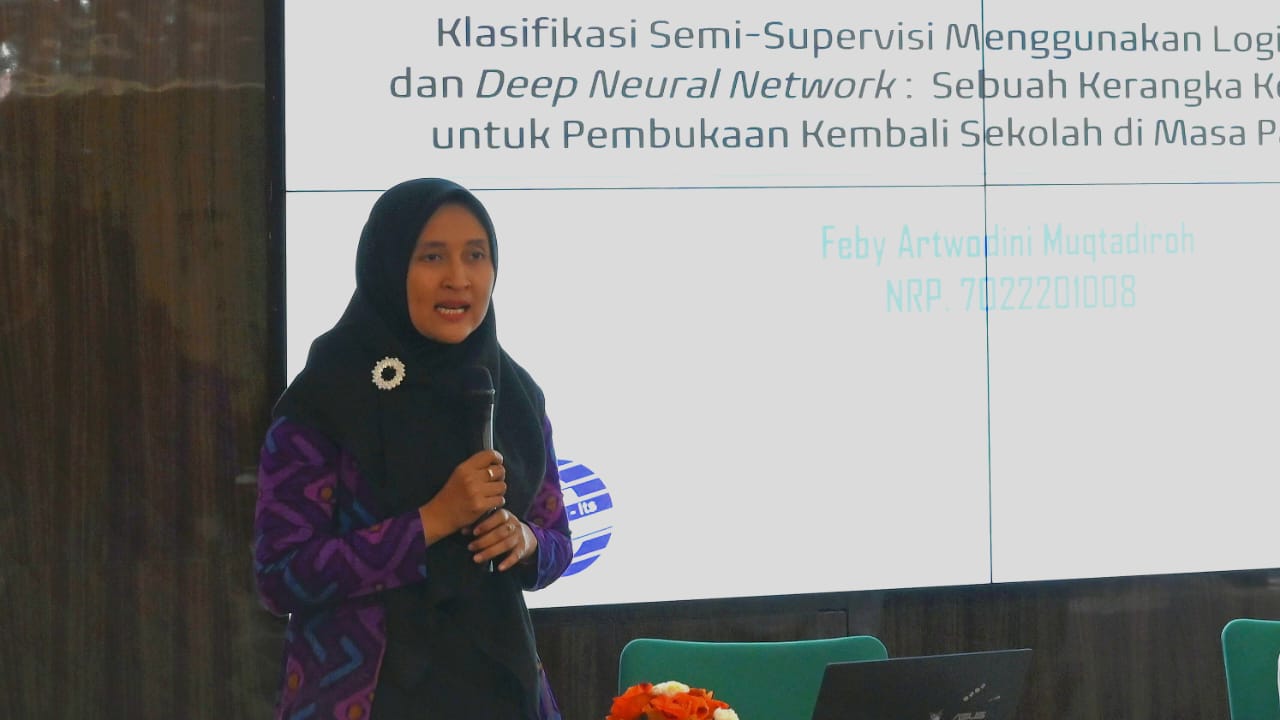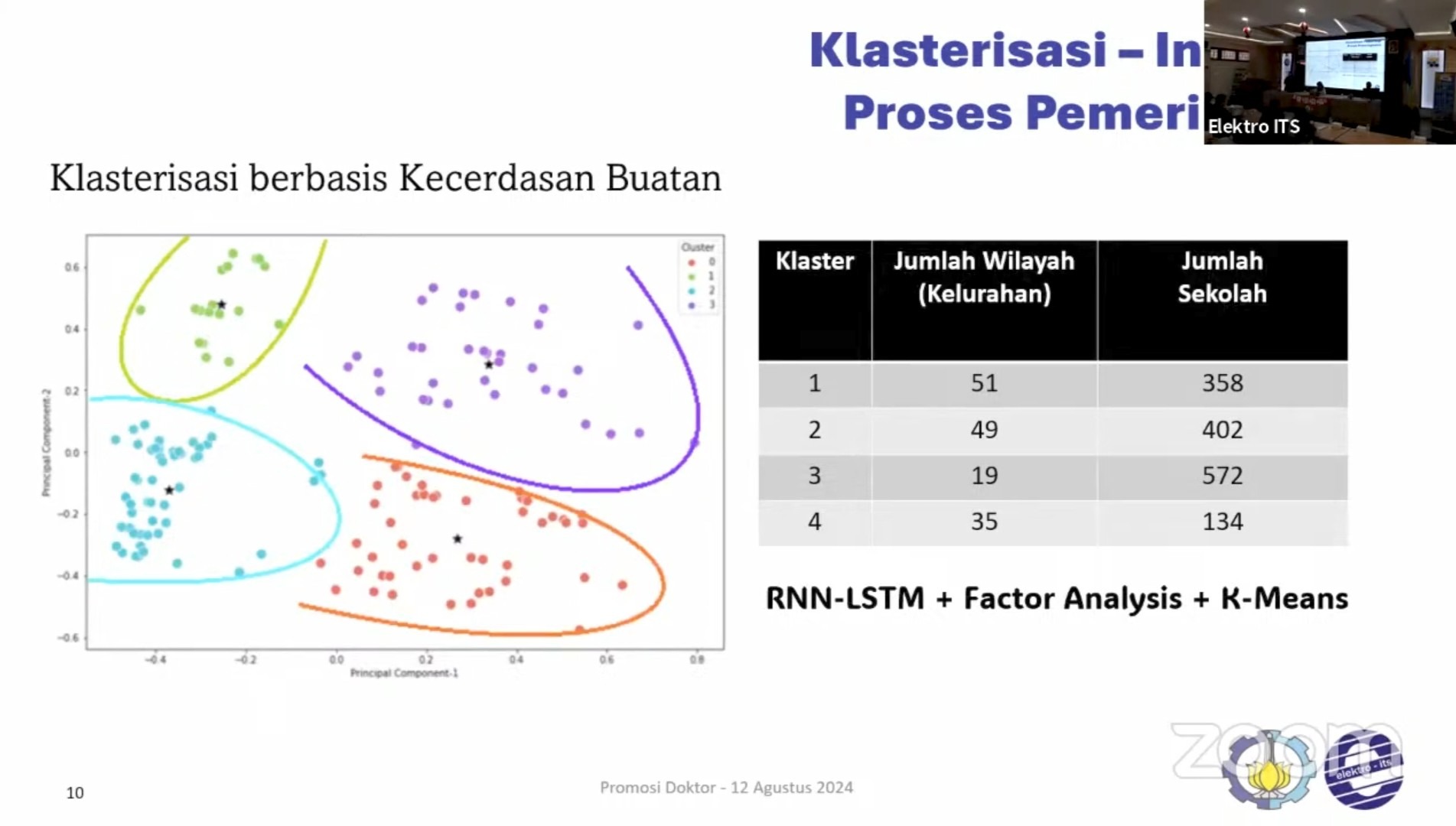ITS Doctor Develops AI-Based Decision-Making Method

Dr Feby Artwodini Muqtadiroh (center) with family after the open session for the promotion of new doctors held at the Department of Electrical Engineering ITS
ITS Campus, ITS News — The prolonged implementation of the study-from-home policy during the Covid-19 pandemic led to a decline in educational quality. Addressing this issue, a new doctoral graduate from the Department of Electrical Engineering at Institut Teknologi Sepuluh Nopember (DTE ITS) devised an artificial intelligence (AI)-based ranking system and scoring method to accurately determine the safe reopening of schools during the pandemic.
During the Open Doctoral Promotion Session at DTE ITS on Monday (August 12), Dr. Feby Artwodini Muqtadiroh explained the need for precise and firm guidelines regarding school reopenings in the critical period of the Covid-19 pandemic. Feby emphasized that reopening strategies based solely on the conditions in a city could actually increase the risk of virus transmission. “Therefore, clearer and more detailed guidelines are required on this issue,” she explained.
Feby further noted that data sources, information, and government regulations concerning the spread of Covid-19 were sufficient to serve as a basis for more efficient policy-making. “Deciding to reopen schools based on assessments at the neighborhood level is more effective because of the unique and more accurate conditions of Covid-19 spread,” said the ITS Information Systems Department lecturer.
In response to this challenge, Feby applied the Fuzzy Technique for Order of Preference by Similarity to the Ideal Solution (Fuzzy TOPSIS), an AI-based ranking technique, to determine school reopenings based on Covid-19 spread data. “This research aims to provide a new decision-making approach by ranking regions in a verifiable manner,” explained the woman born in 1983.
Interestingly, the Fuzzy TOPSIS weighting technique applied by the Jember-born researcher involved social assessments from epidemiology experts on several supporting criteria. These criteria included the 2020 Decree of the Indonesian Minister of Health and the Covid-19 Task Force Guidelines. The weighting was optimized using the Urgency, Seriousness, Growth (USG) score-based assessment technique to reflect expert opinions in fuzzy numbers.

Dr Feby Artwodini Muqtadiroh when presenting her dissertation on the controlled area ranking system using the Fuzzy TOPSIS method with USG-based social assessment
Feby then conducted clustering to group neighborhood areas using data on daily Covid-19 cases, area size, and school data from 154 neighborhoods and 1,466 schools in Surabaya. “Clustering was done to group regions with similar Covid-19 spread conditions,” said the ITS Informatics Engineering bachelor’s alumnus.
The next step involved normalizing the fuzzy numbers for each criterion with the Covid-19 spread clusters to determine the distance to both positive and negative ideal solutions. Finally, Feby applied a closeness coefficient calculation to the normalized data to obtain the scores and rankings of regions with controlled conditions.

Dr Feby Artwodini Muqtadiroh when presenting the results of the clustering of Covid-19 distribution areas based on artificial intelligence based on daily Covid-19 case data sources, area size, and school data.
Through the series of ranking stages, the study titled School Reopening Decision-Making During the Pandemic Using AI-Based Regional Ranking demonstrated positive results. By considering urgency, seriousness, and growth factors, the study produced accurate rankings that could serve as a basis for policymaking.
Feby’s research proved to be 99.47% accurate in determining safe school reopenings during the Covid-19 pandemic. Additionally, the research excelled in handling high complexity and uncertainty. “In the future, this method could also be used for solving other problems requiring scientific ranking based on social assessments,” concluded Feby. (ITS Public Relations)
Reporter: Ahmad Naufal Ilham
Related News
-
ITS Wins 2024 Project Implementation Award for Commitment to Gender Implementation
ITS Campus, ITS News —Not only technology-oriented, Institut Teknologi Sepuluh Nopember (ITS) also show its commitment to support gender
August 17, 2024 06:08 -
ITS Professor Researched the Role of Human Integration in Sustainable Architecture
ITS Campus, ITS News –The developing era has an impact on many aspects of life, including in the field
August 17, 2024 06:08 -
ITS Sends Off Group for Joint Homecoming to 64 Destination Areas
ITS Campus, ITS News — Approaching Eid al-Fitr, the Sepuluh Nopember Institute of Technology (ITS) is once again facilitating academics who want
August 17, 2024 06:08 -
ITS Expert: IHSG Decline Has Significant Impact on Indonesian Economy
ITS Campus, ITS News — The decline in the Composite Stock Price Index (IHSG) by five percent on March 18,
August 17, 2024 06:08
